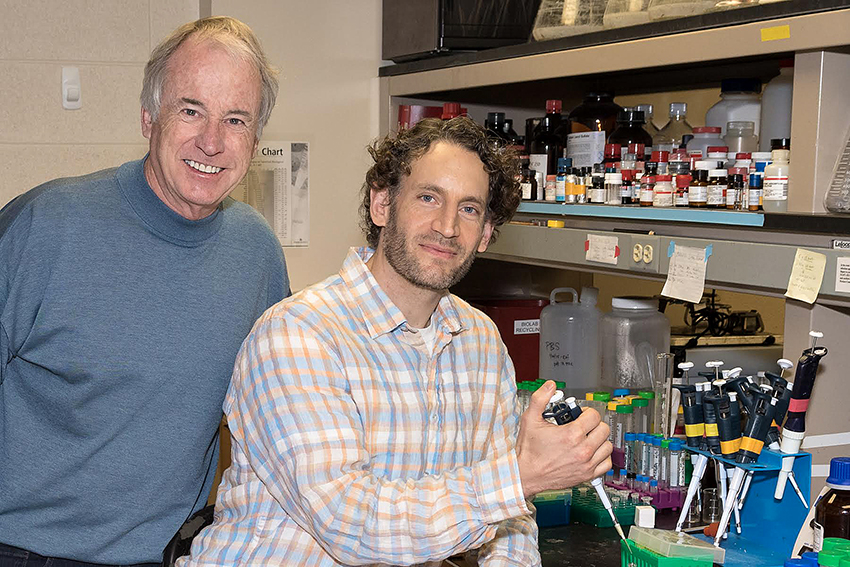There is currently no drug treatment for traumatic brain injury, which affects 10 million people each year. Two UT chemists are looking to change that.
Chemistry professor Stephen Martin and chemistry research scientist Jim Sahn have discovered a novel preclinical drug lead that may have profound effects on the treatment of traumatic brain injury, or TBI.
In the U.S. alone, TBI causes around 30 percent of injury-related deaths, and 5.3 million TBI survivors have lifelong disabilities. Associated medical costs are estimated to be around $76.5 billion, according to the CDC.
Sahn said no drug currently exists to counteract the secondary neuronal damage following initial injury, and no new drug to treat TBI has been approved by the FDA in over 25 years.
Although their work is still in the early preclinical phase, Martin said studies on worms and mice have shown significant promise.
“We know that when mice are treated with our lead compound after traumatic brain injury, their performance is improved to essentially the level of mice that didn’t have the injury,” Martin said.
Martin said that in some cases, the compound completely restored mouse cognitive function. He added that the compound protects neurons, or brain cells, after injury. He added that this finding is particularly important.
Martin and Sahn said their compound acts upon the sigma-2 receptor, which is a protein found in the central nervous system, or CNS, of humans as well as rodents and other animals.
Although the function of this receptor is not well characterized, they said it is being increasingly implicated in cellular processes related to CNS disorders.
To fast-track the road to clinical trials, Martin and Sahn said not only is it necessary to zero in on a single condition, but to carve out a target subpopulation, predict the optimal time of administration and run cost estimates.
“We had naively thought that if we had a drug for Alzheimer’s or brain injury, the world would beat a path to our door — that we couldn’t keep them away,” Martin said. “That’s probably true for patients, but the problem is you have to get it to the point where you can give it to the patients. You really have to persuade drug companies that this is something interesting.”
Even though the team said that traumatic brain injury is currently their “key focus,” they have made exciting preliminary discoveries in other therapeutic areas, such as neuropathic pain, alcohol addiction and Alzheimer’s disease. They added that they will continue to explore other possible medical applications.
“I’m looking at the next milestone, which is hopefully getting NuvoNuro funded, continuing our development activities and advancing our drug leads toward clinical trials,” Sahn said.
NuvoNuro LLC is a life sciences company that Martin and Sahn co-founded last year. They have used it as a vehicle to participate in entrepreneurial events such as the UT-hosted Southwest I-Corps program and stARTup Studio.
As part of Healthcare@McCombs’ Healthcare Technology Commercialization Practicum, four of UT’s MBA students are helping NuvoNuro develop a business plan, Martin said.
Martin and Sahn said if they sought scientific support solely at UT-Austin, they would have come up empty. They said a network of collaborators that stretches from Miami to Stanford — forged by way of cold calls, happy accidents and good old-fashioned luck — was needed to get them this far.
“Without this incredible team, I don’t think we’d be having this conversation today,” Sahn said. “I’m just very excited with what we have achieved and with the prospects of identifying a new drug for treating TBI, and maybe other neurological conditions, that works by a new mechanism of action.”















